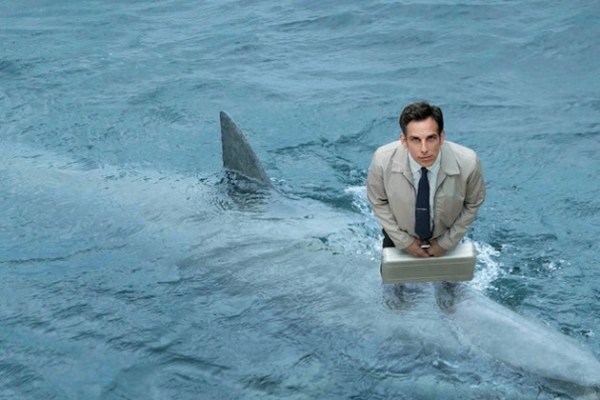
The Secret Life of Walter Mitty (2013) / Comedy-Adventure
MPAA Rated: PG for some crude comments, language and action violence
Running Time: 114 min.Cast: Ben Stiller, Kristen Wiig, Adam Scott, Shirley MacLaine, Sean Penn, Kathryn Hahn, Patton Oswalt, Jon Daly
Small role: Conan O'Brien, Andy Richter
Director: Ben Stiller
Screenplay: Steve Conrad (based on the short story by James Thurber)
Review published December 25, 2013
 The Secret Life of Walter Mitty
The Secret Life of Walter Mitty